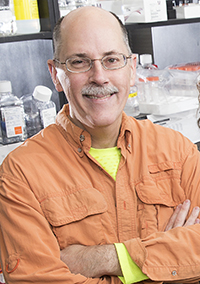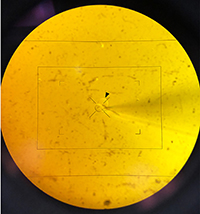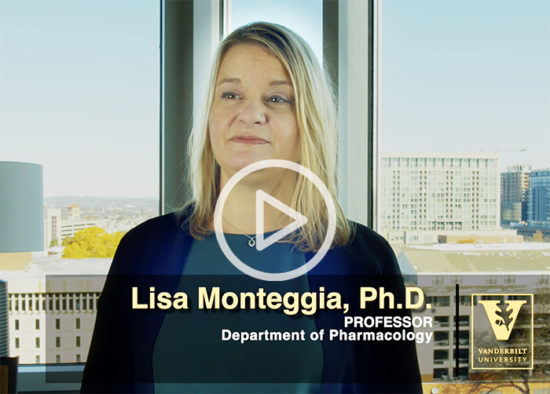|
Dear Subscribers,
A technical glitch prevented us from sending this December Basic Sciences newsletter before the end of the year. We look forward to keeping you up to date on the latest Basic Science news in 2020!
NEWS!
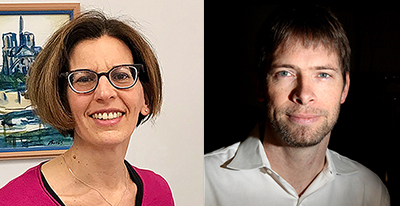 Extracellular Vesicle Research Program launched Extracellular Vesicle Research Program launched
A new program focused on extracellular vesicles (EVs) has been launched within the School of Medicine, Basic Sciences. The program, led by co-directors Alissa Weaver and Andries Zijlstra, will synergize Vanderbilt’s EV research, enabling collaborations that will further the field.
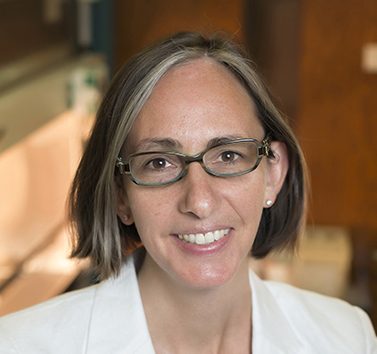 Rathmell named interim chair of Medicine Rathmell named interim chair of Medicine
Starting January 1, 2020, Kim Rathmell (Medicine) will lead the Department of Medicine. She will succeed Nancy Brown, who had been chair of the department since 2010. A 20-person search committee will search for a permanent replacement for Brown.
 Osheroff voted IAMSE president Osheroff voted IAMSE president
The International Association of Medical Science Educators (IAMSE) has elected Neil Osheroff (Biochemistry) president. He will serve as the organization’s leader between January 1, 2020 and December 31, 2021.
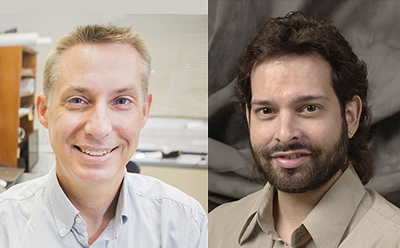 Eight faculty named AAAS fellows Eight faculty named AAAS fellows
Vanderbilt University saw eight of its faculty members named 2019 fellows of the American Association for the Advancement of Science. Among those honored are Jeff Rathmell, Professor of PMI, and David Zald, Professor of Psychology and Vanderbilt Brain Institute member.
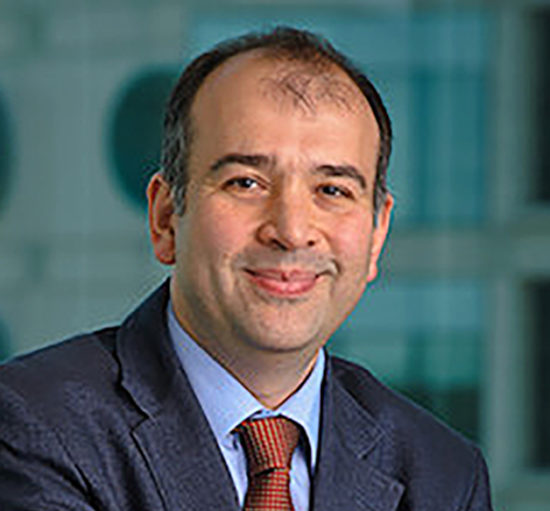 Kavalali recognized by Alexander von Humboldt Foundation Kavalali recognized by Alexander von Humboldt Foundation
Ege Kavalali, acting chair of the Department of Pharmacology, has been elected recipient of a Humboldt Research Award from the Alexander von Humboldt Foundation. The award recognizes the award winner’s academic record to date and fosters international cooperation by facilitating interactions with German scientists.
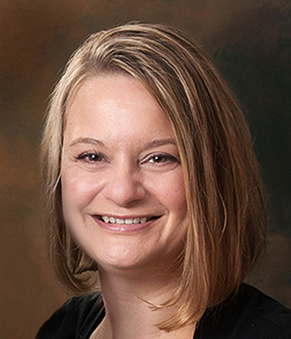 Monteggia elected member of DABI Monteggia elected member of DABI
The Dana Alliance for Brain Initiatives has elected twenty new members to join the organization, including Lisa Monteggia (Pharmacology). The appointment recognizes the inductees as leaders in neuroscience research and clinical neurology. Monteggia is the Barlow Family Director of the Vanderbilt Brain Institute.
NIH seeks to increase inclusivity and diversity
The NIH has expanded the definition of what they consider to be “socio-economically disadvantaged” in an attempt to increase the number of diversity supplement applications from researchers who come from “disadvantaged backgrounds,” as they currently make up <1% of all applications. Read more on this policy statement by Mike Lauer, the NIH’s Deputy Director for Extramural Research.
Diabetes Day features advancements in diabetes research
The annual Diabetes Day, co-sponsored by the Diabetes Research and Training Center and the Center for Diabetes Translation Research, featured research from local and visiting researchers. Read the highlights of the event.
Basic Sciences staff member nominated for Commodore Award
The Commodore Award is Vanderbilt’s highest staff honor, and will be presented to two full-time, regular staff members who have made significant contributions to Vanderbilt University’s pursuit of excellence in education, research and community service. Kristen Riggs, Associate CBO of Pod 3, is among the 14 nominees. The recipients will be announced on January 28, 2020.
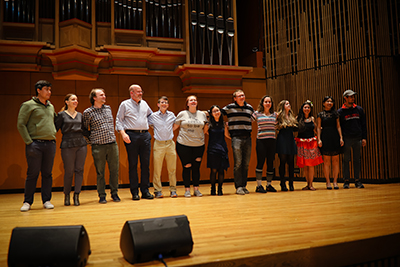
Talent galore at the Vanderbilt Winter Showcase
The Vanderbilt Winter Showcase featured talented students, postdocs, and faculty. The featured art spanned everything from singing, dancing, or playing an instrument to stand-up comedy, painting, pottery, and even baking.
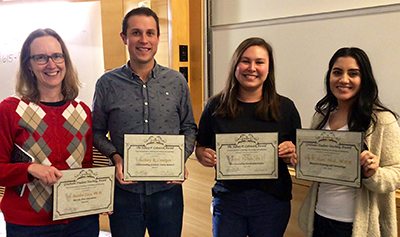 Exceptional scholarship and teaching recognized Exceptional scholarship and teaching recognized
The Department of Pathology, Microbiology and Immunology presented the following awards on December 12: Lauren Palmer (Skaar lab), 2019 Sidney Colowick Outstanding Postdoctoral Fellow; Zach Lonergan (Skaar lab), 2019 Sidney Colowick Outstanding Ph.D. Student; Eric Skaar (PMI), the Molecular Pathogenesis & Immunology Teaching Award; and Borden Lacy (PMI), the Microbe-Host Interactions. The latter two awards were determined based on student input. From left to right: Lacy, Lonergan, Palmer, Zeon (in place of Skaar).
Inaugural VU SACNAS seminar a success

The VU chapter of the Society for the Advancement of Chicanos/Hispanics and Native American in Science (SACNAS) inaugurated its seminar series by inviting Nancy Carrasco (MPB), Suzana Herculano-Houzel (Psychology), and Sonia Zarate (SACNAS President) as panelists discussing the union of diverse communities through science.
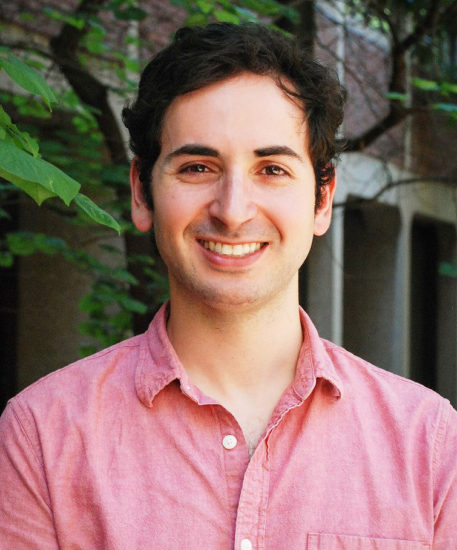 Reisman earns NCI grant Reisman earns NCI grant
MSTP student Ben Reisman (Bachmann lab, Chemistry) has been awarded a National Cancer Institute grant to help fund his research into the differentiation-dependent targeting of glycosylated polyketide natural products in clonal hematopoietic disorders.
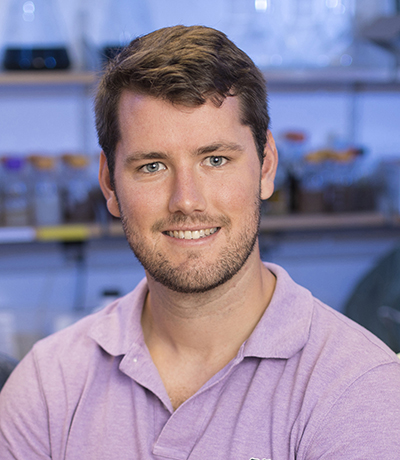 Marinko earns dissertation enhancement grant Marinko earns dissertation enhancement grant
Justin Marinko (Sanders lab, Biochemistry) has been awarded the Russell G. Hamilton Graduate Leadership Institute Dissertation Enhancement Grant. This grant was established to support graduate students with outstanding potential to accelerate progress on their research, adding depth or breadth to their dissertation work. Marinko will use the awarded funds to further his research goal of identifying potential therapeutic targets for Charcot-Marie-Tooth disease.
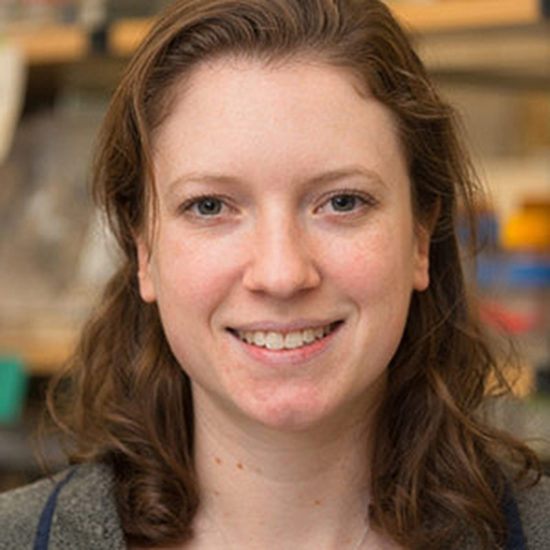 Travel grant for Arcos Travel grant for Arcos
Biochemistry graduate student Sarah Arcos (Ascano lab, Biochemistry) was recently awarded the Russel G. Hamilton Graduate Leadership Institute Travel Grant. The grant is meant to fund professional and/or academic development in ways that go beyond the dissertation. Thanks to the award, Arcos will be attending the 2020 RStudio Conference (rstudio::conf 2020) in San Francisco, CA, in January. Arcos founded R Fridays, an informal gathering for graduate students in Biochemistry designed to promote learning and discussion in a low-pressure environment.
Year-end giving to Basic Sciences
Looking to wrap up your end-of-the-year giving decisions? Here are some options you can use to give back to Vanderbilt. Make sure to specify if you want your gift to go to Basic Sciences – this will ensure your gift directly benefits our students and our researchers!
New Discoveries
First molecular view of critical brain receptor complex
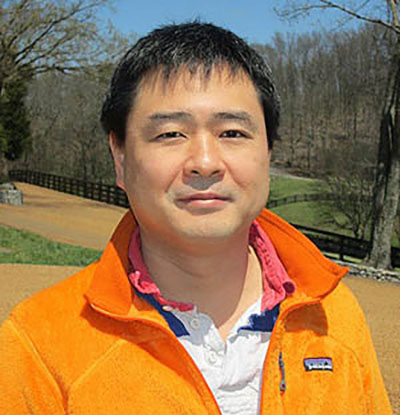 Terunaga Nakagawa (Molecular Physiology and Biophysics) reported in the journal Science the first structures of AMPAR in complex with an auxiliary subunit, CNIH3. These potential new drug targets were obtained using cryo-electron microscopy. Terunaga Nakagawa (Molecular Physiology and Biophysics) reported in the journal Science the first structures of AMPAR in complex with an auxiliary subunit, CNIH3. These potential new drug targets were obtained using cryo-electron microscopy.
Getting at binge drinking
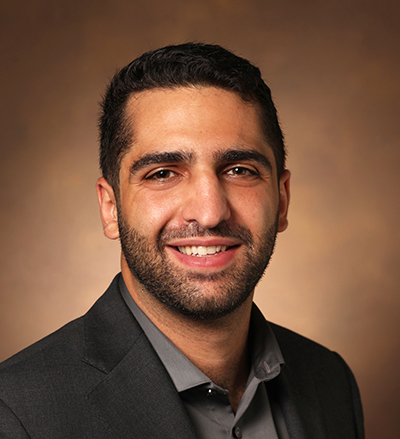 Cody Siciliano (Pharmacology) recently authored a Science paper describing mice’s propensity for binge drinking and what this could mean for humans. Siciliano summarized his research in a piece in The Conversation, and Scientific American covered it in the popular press. Cody Siciliano (Pharmacology) recently authored a Science paper describing mice’s propensity for binge drinking and what this could mean for humans. Siciliano summarized his research in a piece in The Conversation, and Scientific American covered it in the popular press.
B cell fate depends on HDAC3
 The lab of Scott Hiebert (Biochemistry) recently explored the role of the histone deacetylase on the maturation of B cells. The lab of Scott Hiebert (Biochemistry) recently explored the role of the histone deacetylase on the maturation of B cells.
What does MELK do?
 Tina Iverson (Pharmacology) and colleagues have clarified part of the protein kinase MELK’s role in cell cycle signaling. MELK overexpression impacts survival and proliferation of multiple cancer types, so targeting it holds promise as a therapeutic strategy. Tina Iverson (Pharmacology) and colleagues have clarified part of the protein kinase MELK’s role in cell cycle signaling. MELK overexpression impacts survival and proliferation of multiple cancer types, so targeting it holds promise as a therapeutic strategy.
Understanding C. diff toxins
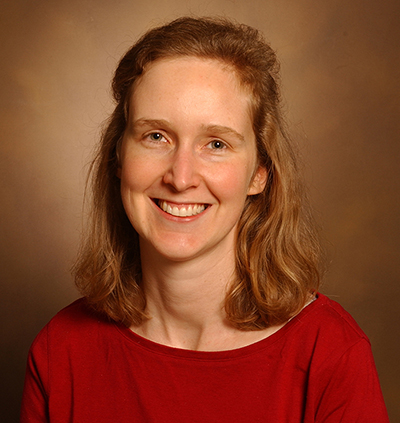 Postdoc Jamie Jensen gives us a first-person account of the latest research from the lab of Borden Lacy (PMI), which was recently published in a Nature Microbiology paper and which describes four structural states of the C. diff transferase (CDT) toxin. Postdoc Jamie Jensen gives us a first-person account of the latest research from the lab of Borden Lacy (PMI), which was recently published in a Nature Microbiology paper and which describes four structural states of the C. diff transferase (CDT) toxin.
Building the skin
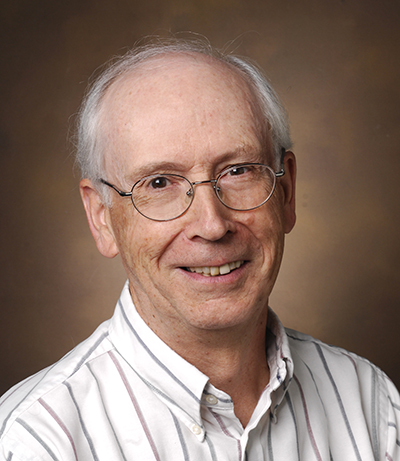 As part of an international collaboration, the lab of Alan Brash (Pharmacology) has clarified the role of SDR9C7 in catalyzing the oxidation of a ceramide prior to its inclusion in the corneocyte lipid envelope, a vital segment of the skin’s permeability barrier. As part of an international collaboration, the lab of Alan Brash (Pharmacology) has clarified the role of SDR9C7 in catalyzing the oxidation of a ceramide prior to its inclusion in the corneocyte lipid envelope, a vital segment of the skin’s permeability barrier.
When to be afraid – and when not to be
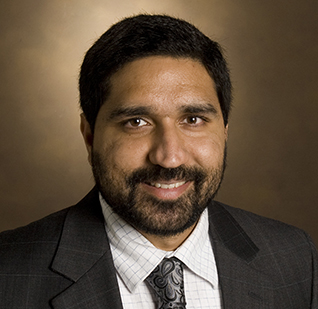 The lab of Sachin Patel (Psychiatry and Behavioral Sciences) has recently published work in Nature Neuroscience that elucidates the pathway by which the brain learns and unlearns fear responses. The lab of Sachin Patel (Psychiatry and Behavioral Sciences) has recently published work in Nature Neuroscience that elucidates the pathway by which the brain learns and unlearns fear responses.
TRAPping insulin synthesis
 While conducting an unbiased genetic screen in C. elegans, the lab of Patrick Hu (Medicine) found that TRAP-alpha is essential for insulin synthesis by shuttling preproinsulin to the endoplasmic reticulum (ER) and helping to maintain ER homeostasis. While conducting an unbiased genetic screen in C. elegans, the lab of Patrick Hu (Medicine) found that TRAP-alpha is essential for insulin synthesis by shuttling preproinsulin to the endoplasmic reticulum (ER) and helping to maintain ER homeostasis.
LIBRA-seq: A new way to speed vaccine research
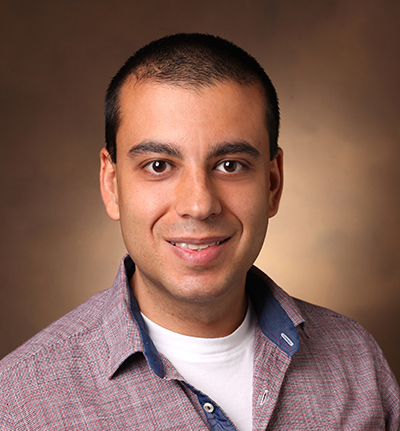 The lab of Ivelin Georgiev (PMI) has developed a new tool, Linking B-cell Receptor to Antigen Specificity through sequencing (LIBRA-seq), that links antibody sequences to their specificities. The lab of Ivelin Georgiev (PMI) has developed a new tool, Linking B-cell Receptor to Antigen Specificity through sequencing (LIBRA-seq), that links antibody sequences to their specificities.
Solving structures, treating epilepsy
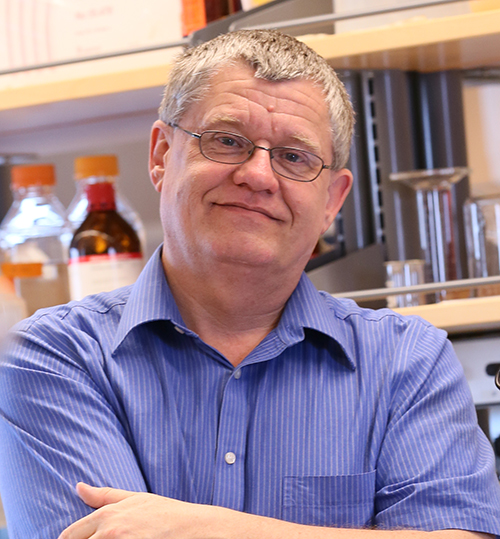 A collaboration involving the lab of Eric Delpire (Anesthesiology) has solved the structure of the KCC1 ion channel and has provided a blueprint for drug design; targeting KCC1 could improve the treatment of epilepsy and other seizure disorders. A collaboration involving the lab of Eric Delpire (Anesthesiology) has solved the structure of the KCC1 ion channel and has provided a blueprint for drug design; targeting KCC1 could improve the treatment of epilepsy and other seizure disorders.
Finding the mediator of endotoxin shock
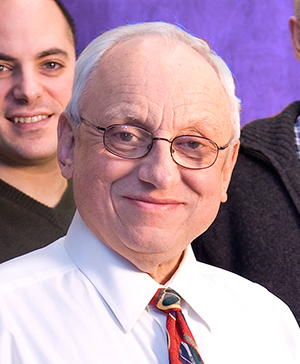 Through the use of a novel cell-penetrating peptide designed by the lab of Jacek Hawiger (Medicine), Vanderbilt researchers have identified proinflammatory stress-responsive transcription factors (SRTFs) as the mediators of endotoxin shock. Through the use of a novel cell-penetrating peptide designed by the lab of Jacek Hawiger (Medicine), Vanderbilt researchers have identified proinflammatory stress-responsive transcription factors (SRTFs) as the mediators of endotoxin shock.
Jobs
Postdoc, lab of Ann Richmond (Pharmacology).
Research Assistant II, lab of Ann Richmond.
Postdoc, lab of James Crowe (Pediatrics).
Two faculty positions open for applications
Basic Sciences currently has two faculty openings: one for Assistant Professor in Computational Biology, and one for a tenure-track appointment (Assistant Professor or beyond) in the Department of Molecular Physiology and Biophysics. The search for Computational Biology candidates is coordinated between the four Basic Sciences departments. Review and evaluation of applications began on December 1, so please spread the word far and wide. All are welcome to apply.
Staff leadership role open at VMAC
The Vanderbilt Memory & Alzheimer’s Center (VMAC) has an opening for a staff leadership role where the staff member will oversee its clinical research operations. Recent or upcoming Ph.D. graduates are invited to apply. The position is ideal for someone who does not want to pursue an independent research career but is interested in staying engaged in the academic research process. Please contact Angela Jefferson to apply.
External Funding Opportunities
Basic Experimental Studies with Humans
The NIH has recently announced the publication of new funding opportunities specifically for research involving human subjects that aims to understand the fundamental aspects of phenomena without an immediate or apparent application. See their FAQs here and keep on the lookout for these opportunities.
Chateaubriand Fellowship for Ph.D. students
The Chateaubriand Fellowship call for applications for the 2020-2021 academic year is now open. This fellowship offered by the Embassy of France in the United States allows PhD students enrolled in American universities to conduct research in France for 4-9 months. Applications are due by January 7, 2020.
Internal Funding Opportunities
Global Research and Engagement Micro-Grants
The Office of the Provost invites faculty to submit proposals for the Global Research and Engagement Micro-Grants to help with the opportunity to pursue international research, scholarship, and creative expression projects, or to pursue strategic, time-sensitive opportunities for global research and engagement. Applications for this grant are received on a rolling basis through June 2020, and winners are announced monthly.
VU Bridge Program
Primary Basic Sciences faculty with lapses in federal grant support are invited to apply for this program. The next two submission deadlines for Bridge/Realignment Grant funding are January 15 and May 15, 2020. The instructions for submission of proposals have been completely overhauled and have been posted on the VBS website. It is critical that faculty who wish to apply follow the posted instructions.
TIPs Vanderbilt Initiative Awards
ViAs provide seed funding to help faculty launch innovative ideas for discovery and learning with colleagues from diverse disciplines. The program should demonstrate independent value with the possibility of becoming a new center or institute. Deadline for proposals is January 20, 2020.
TIPs Vanderbilt Re-investment Awards
VRAs provide funds to existing centers and institutes to facilitate discovery and learning collaborations across campus. The program is geared to help these centers/institutes advance to the next level, launch new activities, enhance current capabilities and ensure continued success. Deadline for proposals is January 20, 2020.
New NIGMS Funding Mechanism
The National Institute of General Medical Sciences (NIGMS) has terminated its Program Projects Grant program and has replaced it with a new funding mechanism titled, “Collaborative Program for Multidisciplinary Teams” (RMI). Application due dates are January 25 and May 25, 2020.
Research Scholar Grants
Proposals for Research Scholar Grant funding are being accepted until February 3, 2020. All full-time VU faculty are eligible.
Discovery Grants
Proposals for Discovery Grant funding are being accepted until February 10, 2020. All full-time VU faculty are eligible.
| ![CAS - Basic Sciences - Internal E-Newsletter [Vanderbilt University]](https://cdn.vanderbilt.edu/vu-URL/wp-content/uploads/sites/119/2021/04/19142723/basically-speaking-banner-04-2021.jpg)
 Extracellular Vesicle Research Program launched
Extracellular Vesicle Research Program launched Rathmell named interim chair of Medicine
Rathmell named interim chair of Medicine Osheroff voted IAMSE president
Osheroff voted IAMSE president Eight faculty named AAAS fellows
Eight faculty named AAAS fellows Kavalali recognized by Alexander von Humboldt Foundation
Kavalali recognized by Alexander von Humboldt Foundation Monteggia elected member of DABI
Monteggia elected member of DABI
 Exceptional scholarship and teaching recognized
Exceptional scholarship and teaching recognized
 Reisman earns NCI grant
Reisman earns NCI grant Marinko earns dissertation enhancement grant
Marinko earns dissertation enhancement grant Travel grant for Arcos
Travel grant for Arcos Terunaga Nakagawa (Molecular Physiology and Biophysics)
Terunaga Nakagawa (Molecular Physiology and Biophysics)  Cody Siciliano (Pharmacology) recently authored a
Cody Siciliano (Pharmacology) recently authored a  The lab of Scott Hiebert (Biochemistry) recently explored the
The lab of Scott Hiebert (Biochemistry) recently explored the  Tina Iverson (Pharmacology) and colleagues have clarified part of the
Tina Iverson (Pharmacology) and colleagues have clarified part of the  Postdoc Jamie Jensen gives us a first-person account of the latest research from the lab of Borden Lacy (PMI), which was recently published in a
Postdoc Jamie Jensen gives us a first-person account of the latest research from the lab of Borden Lacy (PMI), which was recently published in a  As part of an international collaboration, the lab of Alan Brash (Pharmacology) has clarified the role of SDR9C7 in catalyzing the
As part of an international collaboration, the lab of Alan Brash (Pharmacology) has clarified the role of SDR9C7 in catalyzing the  The lab of Sachin Patel (Psychiatry and Behavioral Sciences) has recently published work in
The lab of Sachin Patel (Psychiatry and Behavioral Sciences) has recently published work in  While conducting an
While conducting an  The lab of Ivelin Georgiev (PMI) has
The lab of Ivelin Georgiev (PMI) has  A collaboration involving the lab of Eric Delpire (Anesthesiology) has
A collaboration involving the lab of Eric Delpire (Anesthesiology) has  Through the use of a
Through the use of a 